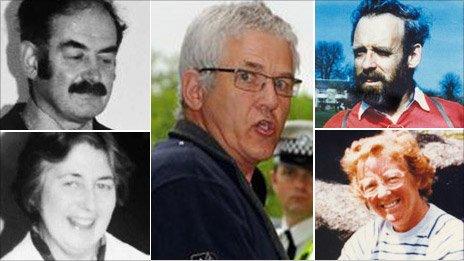Pembrokeshire Murders: Ex-officer on 'squeezing six years into three episodes'
- Published
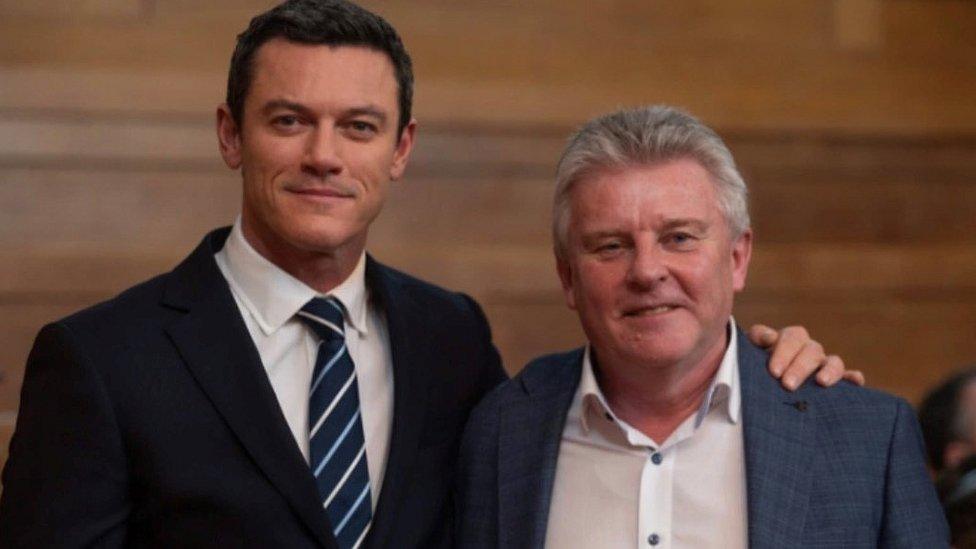
Hollywood star Luke Evans (left) plays former Det Supt Steve Wilkins
When senior detective Steve Wilkins was first told the investigation he led into one of the most notorious killers in modern Welsh history was being made into a primetime television show, his first thought was for the families of those who died, rather than who would be playing him.
But that did not stop it coming as a bit of a surprise to the 61-year-old that ITV had cast Hollywood star Luke Evans as the lead in The Pembrokeshire Murders, a three-part drama about a cold case review team pursuing multiple murderer John Cooper.
Warning: This article contains spoilers
Cooper, who was handed a whole-of-life sentence in 2011 for the murders of brother and sister Richard and Helen Thomas and holidaymakers Peter and Gwenda Dixon, has become known as the Bullseye Killer because of his appearance on the popular darts-themed game show around the time of the murders.
The killings, and an attack on a group of teenagers in 1996 which saw a girl raped at knifepoint, had taken place "within five miles of each other" near the tip of south-west Wales, Wilkins said, but remained unsolved 20 years after the first crime had taken place.
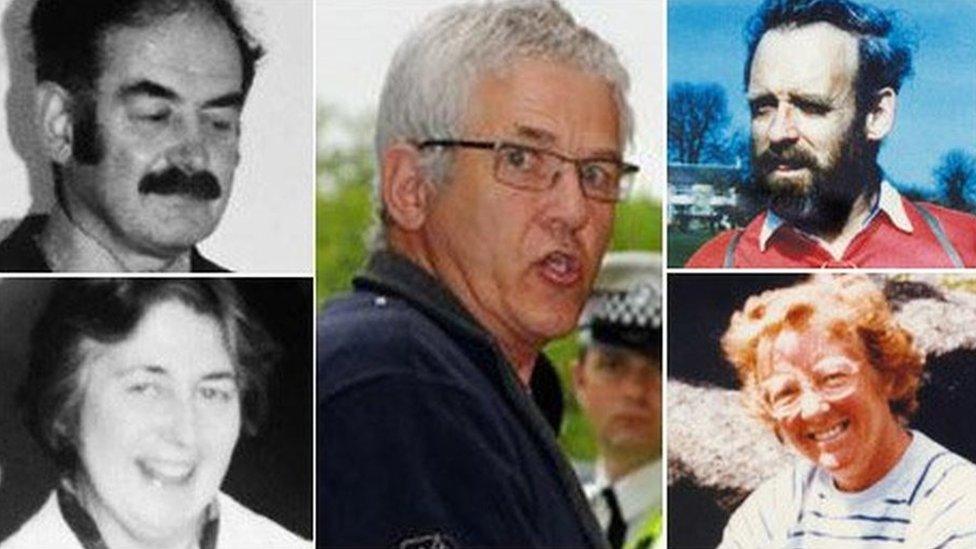
John Cooper (pictured centre) killed Richard and Helen Thomas (left) in 1985 and Peter and Gwenda Dixon (right) in 1989
Having just returned to Dyfed-Powys Police after two years working with the National Criminal Intelligence Service, then Det Supt Wilkins said he decided to take another look at the cases "as nationally, there had been a number of successes on cold case reviews".
"I was also aware that a possible suspect, John William Cooper, was serving a 16-year sentence for armed robbery and due for parole.
"He [had] lived in the same area and my concern was that if he was responsible, he would kill again."
The detective's hunch led to a "massive investigation" which saw officers sift through "almost 5,000 exhibits and 2,000,000 pieces of paper".
"For the first three years, we didn't get a forensic link," recalled Mr Wilkins.
"Then in 2008, a pair of shorts seized from Cooper's house in 1996 were re-examined and a speck of blood was recovered which belonged to Peter Dixon.
"Soon after, [Mr Dixon's] blood was found on a shotgun used by Cooper in a previous robbery."
Those breakthroughs would eventually lead to Cooper being found guilty of all three attacks.
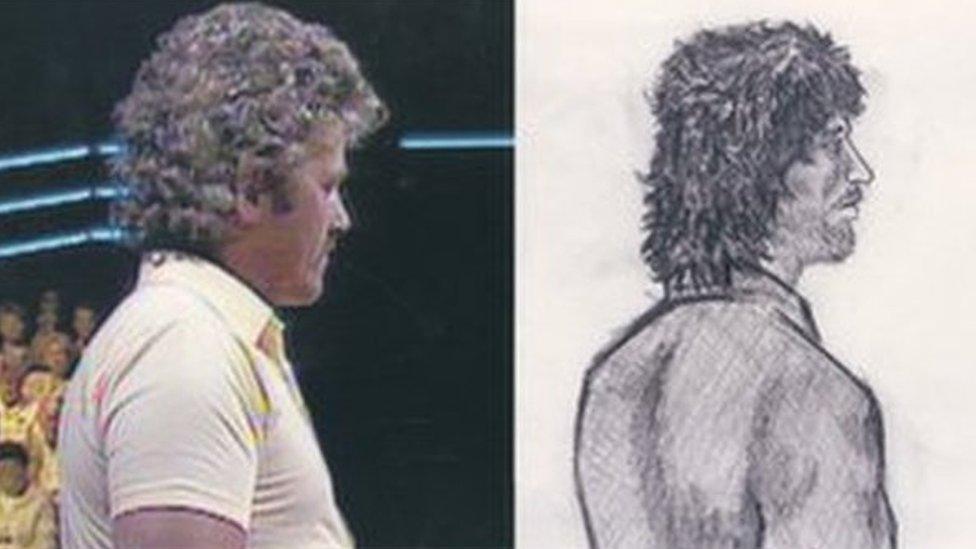
Cooper's trial in 2011 was shown a clip of him appearing on Bullseye and an artist's impression of a suspect
Mr Wilkins said he "never intended to write a book" about the investigation but, after being approached by "a number of writers" interested in the case, he wanted to "give an accurate, sensitive record".
That decision ultimately led him to discussing the case with Dracula Untold and Beauty and the Beast star Evans over "a couple of beers".
The actor said recently that telling the story was "a huge responsibility" as he "wanted to tell it right and show justice for the victims".
"This is a very serious, sad story where four people lost their lives and their families have struggled and suffered greatly because of it."
Mr Wilkins, who now lives back in his native Cheshire, said he was impressed by Evans and the rest of the cast's approach.
"I cannot speak too highly of their understanding, sensitivity and professionalism and commitment to getting it right.
"They quickly understood that they were depicting real people, many who are still carrying the scars."
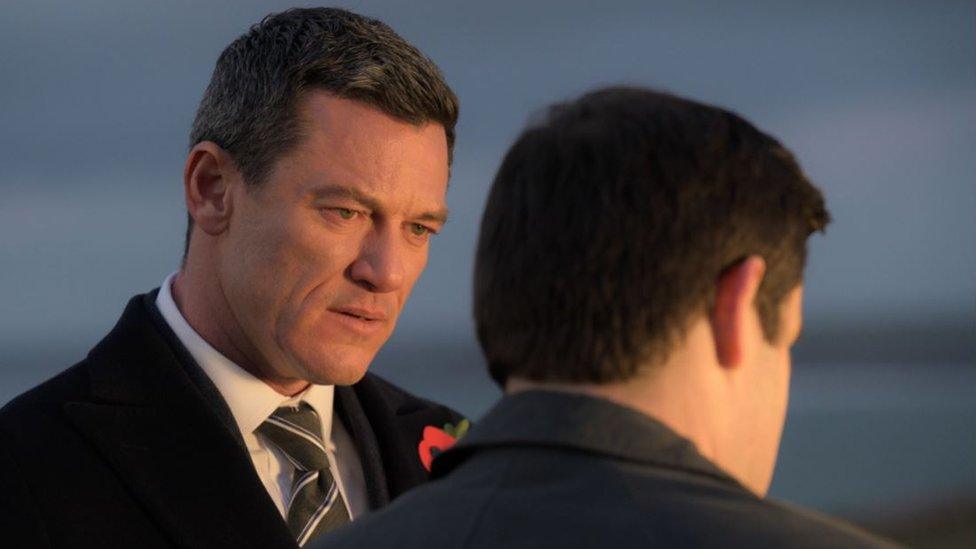
Evans told the BBC he wanted to tell the story "right and show justice for the victims"
He said the Hollywood star had been "a lovely guy - down to earth and very professional".
"Luke wanted to know the detail of the investigation, how I would do and say things and why certain decisions were made.
"He wanted to know about the victims and their families as he really cares."
Mr Wilkins said it was vital to him that the drama did not "sensationalise the crimes".
"It is very difficult to squeeze six years into three episodes, but in doing so, we agreed red lines which must not be crossed... and that has been achieved."
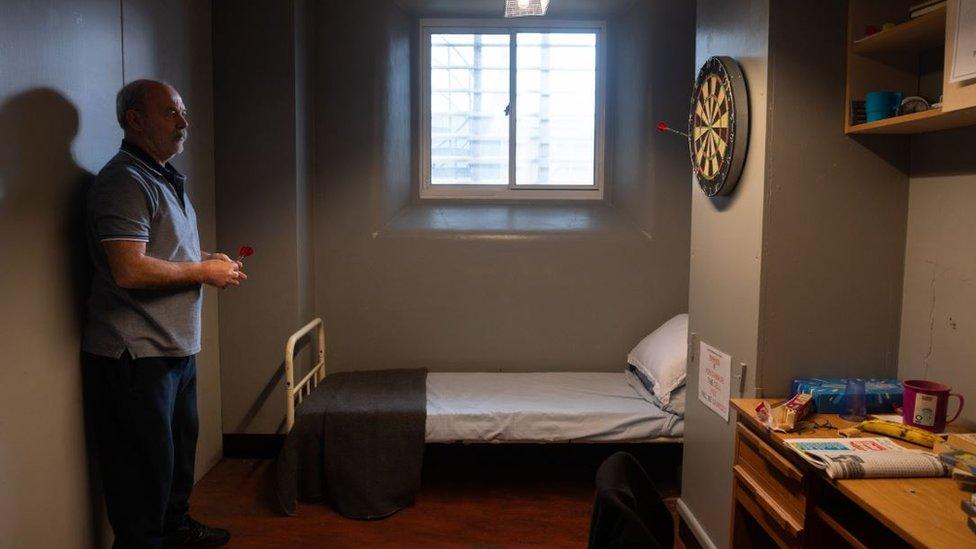
Keith Allen plays John Cooper in the drama
Mr Wilkins said he hoped viewers would take away a sense of "how committed my team was to achieving justice".
"As the senior investigating officer, you tend to get the accolades, but I had the privilege to lead a hand-picked team. They were remarkable, as were the scientists led by Angela Gallop and the prosecution team by Gerard Elias QC.
"It will never leave me and I am very proud that... we were able to achieve justice for the victims and their families; they deserved it.
"I also hope [the audience] can understand the strength of the families and victims who lived through the crimes and court process.
"But most of all, I hope they understand that when it goes wrong, there is a committed, compassionate and professional service that will do its utmost to find the truth and achieve justice."
The Pembrokeshire Murders is on ITV at 21:00 GMT on 11, 12 and 13 January.

Why not follow BBC North West on Facebook, external, Twitter, external and Instagram, external? You can also send story ideas to northwest.newsonline@bbc.co.uk, external
- Published7 January 2021
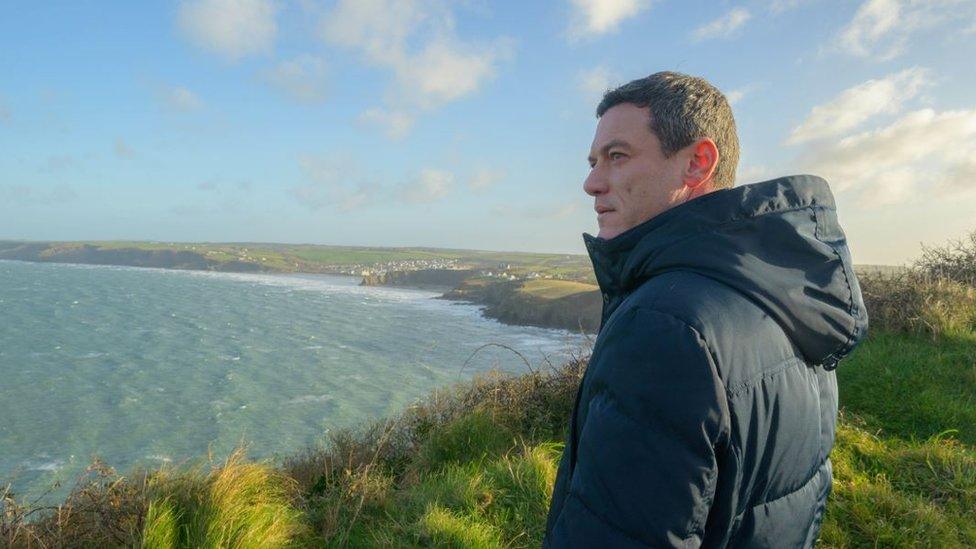
- Published20 January 2020
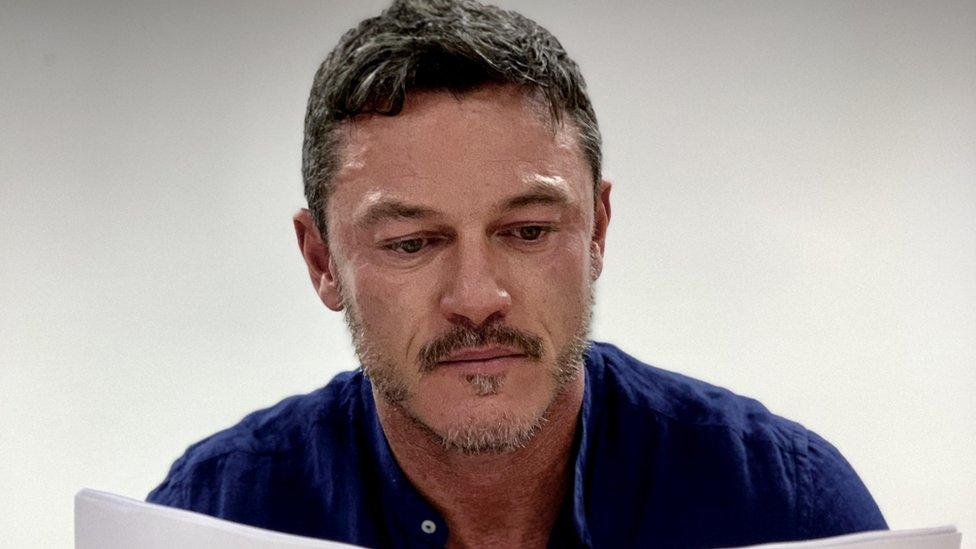
- Published26 May 2011
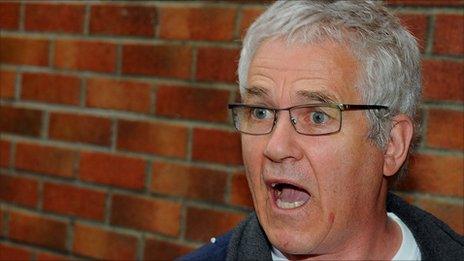
- Published26 May 2011
